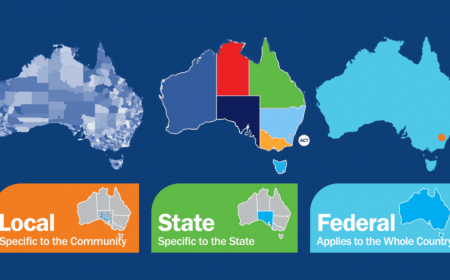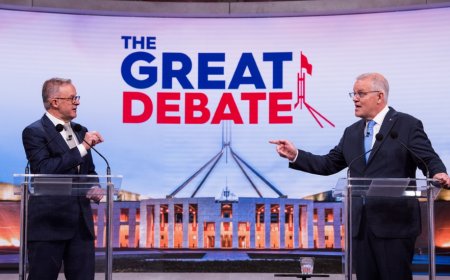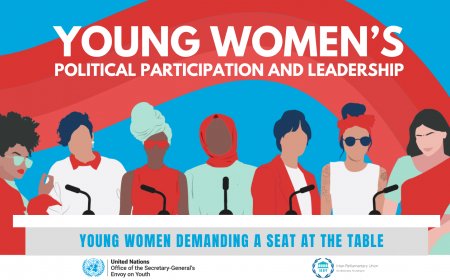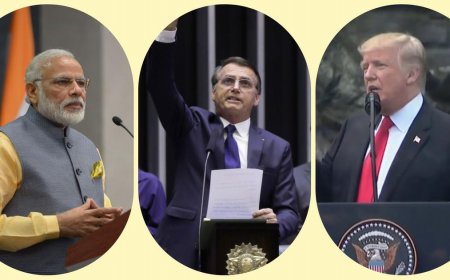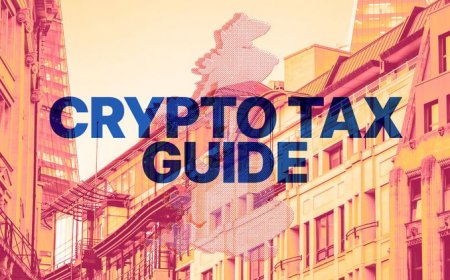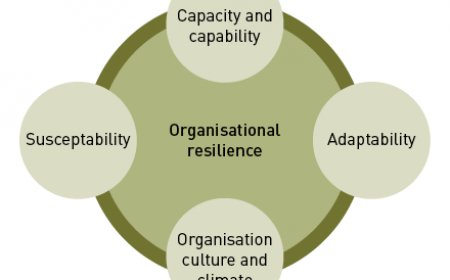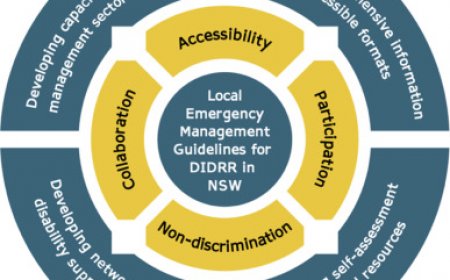Populism vs Establishment Politics: Understanding the Political Pulse
Explore the clash between populism and establishment politics in modern governance. Understand their origins, impacts, and implications for democracy, economics, and global cooperation.
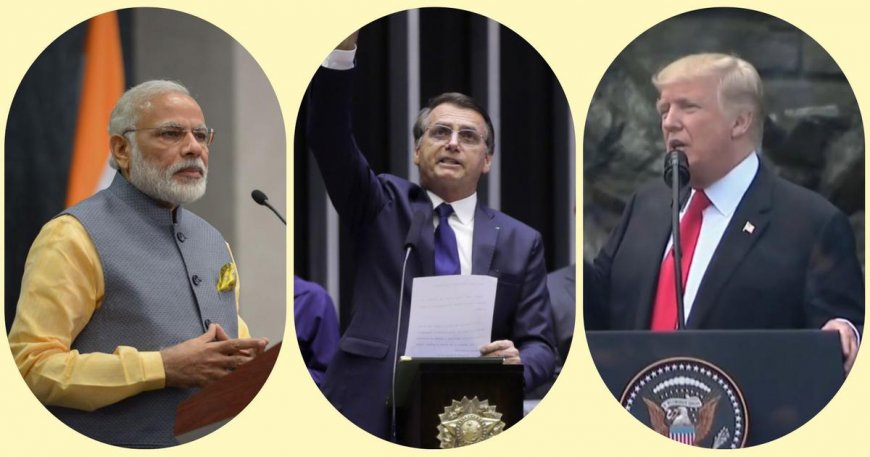
In today’s rapidly evolving political landscape, the clash between populism and establishment politics has become a defining feature of modern governance. As nations grapple with economic uncertainty, social unrest, and technological disruption, these two ideologies have emerged as opposing forces shaping public discourse. This article delves deep into the intricacies of populism and establishment politics, exploring their origins, impacts, and implications for the future.
The Rise of Populism: A Voice for the Disenfranchised
Populism is not a new phenomenon, but its resurgence in recent years has captured global attention. At its core, populism seeks to represent the "common people" against perceived elites or entrenched systems of power. It often thrives during periods of economic hardship, inequality, or widespread disillusionment with traditional institutions. The term itself evokes images of fiery speeches, mass rallies, and promises to dismantle corrupt systems. Yet, populism is far more nuanced than this surface-level portrayal suggests.
What Drives Populist Movements?
Populist movements are fueled by a combination of factors that resonate deeply with disenfranchised populations. These include:
-
Economic Inequality : When wealth disparities widen, populist leaders often exploit grievances by promising redistribution and reform. For instance, stagnant wages, rising living costs, and unemployment create fertile ground for populist rhetoric. Leaders may advocate for policies like higher taxes on the wealthy or protectionist trade measures to shield local industries.
-
Cultural Backlash : Rapid social changes, such as immigration or shifts in cultural norms, can alienate certain groups, creating fertile ground for populist appeals. In many cases, populist leaders frame these changes as threats to national identity or tradition, rallying supporters around nostalgic visions of the past.
-
Distrust in Institutions : Corruption scandals, bureaucratic inefficiency, and perceived elitism erode trust in established political systems. Populist leaders capitalize on this distrust by positioning themselves as outsiders who will “drain the swamp” or “clean up the mess.”
-
Technological Disruption : The rise of automation and artificial intelligence has displaced workers in various sectors, leading to fears about job security. Populist narratives often blame globalization and foreign competition rather than addressing the complexities of technological advancement.
-
Media Influence : Traditional media outlets are sometimes seen as biased or out of touch, prompting citizens to turn to alternative sources of information. Social media platforms amplify populist messages, enabling leaders to bypass gatekeepers and communicate directly with their base.
Case Studies of Populism
From Donald Trump's presidency in the United States to Jair Bolsonaro's leadership in Brazil, populist leaders have risen to prominence worldwide. Each case offers unique insights into how populism manifests across different contexts.
-
United States (Donald Trump) : Trump’s 2016 campaign capitalized on anti-establishment sentiment, promising to "Make America Great Again." His rhetoric targeted immigrants, free trade agreements, and political elites, resonating with working-class voters disillusioned by decades of neoliberal policies.
-
Brazil (Jair Bolsonaro) : Bolsonaro positioned himself as a law-and-order candidate, appealing to conservative values and criticizing leftist policies. Despite controversy over his authoritarian tendencies, he garnered significant support among rural communities and evangelical Christians.
-
India (Narendra Modi) : Modi’s Bharatiya Janata Party (BJP) combines Hindu nationalism with populist economics. While promoting development initiatives like digital banking and infrastructure projects, Modi also emphasizes cultural pride and religious identity.
"Populism is not inherently good or bad—it depends on how it manifests and who wields its power."
While some argue that populism gives voice to marginalized communities, critics warn of its potential to undermine democratic norms and foster authoritarian tendencies. The challenge lies in distinguishing constructive populism from destructive demagoguery.
Establishment Politics: The Pillars of Stability
On the other side of the spectrum lies establishment politics , which emphasizes continuity, compromise, and adherence to institutional frameworks. Proponents view it as essential for maintaining stability and safeguarding democracy. Unlike populism, which thrives on disruption, establishment politics prioritizes incremental progress and evidence-based policymaking.
Key Characteristics of Establishment Politics
-
Bureaucratic Expertise : Policymaking relies heavily on data-driven analysis and expert input. Think tanks, academic research, and government agencies play crucial roles in shaping decisions.
-
Incremental Change : Rather than sweeping reforms, establishment politicians advocate gradual progress through negotiation and consensus-building. This approach minimizes risks associated with abrupt policy shifts.
-
Global Cooperation : International alliances and treaties are prioritized over isolationist policies. Multilateral organizations like the United Nations, World Trade Organization, and European Union exemplify efforts to promote collective action.
-
Rule of Law : Upholding legal principles ensures accountability and protects individual rights. Judicial independence and checks on executive power are hallmarks of strong institutions.
-
Long-Term Planning : Policies address future challenges, such as climate change, aging populations, and technological innovation. Sustainable development goals reflect commitment to intergenerational equity.
Strengths and Weaknesses
Establishment politics excels at fostering long-term planning and avoiding abrupt policy shifts. However, its reliance on elite networks and technical jargon can alienate ordinary citizens who feel excluded from decision-making processes. Critics accuse establishment figures of being out of touch with grassroots concerns, leading to voter apathy or backlash.
The Clash of Ideologies: Why It Matters
The tension between populism and establishment politics reflects broader societal divides. Understanding this dynamic is crucial for navigating contemporary challenges.
Impact on Governance
When populist forces gain traction, they often disrupt existing structures, leading to both innovation and instability. For example:
-
Brexit : The UK's decision to leave the European Union exemplifies how populist campaigns can overturn decades of diplomatic agreements. Campaign slogans like “Take Back Control” tapped into frustrations over sovereignty and immigration.
-
France’s Yellow Vests Movement : Grassroots protests highlighted dissatisfaction with centrist policies, forcing concessions from President Emmanuel Macron. Demonstrators demanded lower fuel taxes, higher minimum wages, and greater representation.
Conversely, when establishment politics dominates, there is a risk of stagnation if leaders fail to address pressing issues like climate change or income inequality. Citizens may perceive incremental reforms as insufficient, fueling resentment toward the status quo.
Economic Implications
Populist economic policies often prioritize short-term gains over long-term sustainability. For instance:
- Protectionist tariffs may boost domestic industries temporarily but harm consumers through higher prices and reduced choice.
- Fiscal stimulus packages might stimulate growth initially but exacerbate debt burdens later.
Establishment approaches, meanwhile, emphasize structural reforms and prudent fiscal management. However, these strategies require patience and sacrifice, which can be politically unpopular.
Social Consequences
Populism tends to polarize societies along ideological lines, pitting “us” against “them.” This binary framing fosters division and undermines social cohesion. By contrast, establishment politics promotes inclusivity and pluralism, albeit sometimes at the expense of decisive action.
Analyzing the Role of Media in Shaping Perceptions
Media plays a pivotal role in framing narratives around populism and establishment politics. Depending on editorial biases, coverage can either amplify populist messages or discredit them.
Traditional Media vs New Media
Traditional outlets like newspapers and television networks typically adhere to journalistic standards, providing balanced perspectives. However, declining revenues and shrinking audiences have forced many publications to adopt sensationalist tactics to attract readers.
New media platforms, particularly social media, operate differently. Algorithms prioritize engaging content, regardless of accuracy or fairness. This creates echo chambers where users encounter only viewpoints aligned with their beliefs.
Social Media as a Game-Changer
Platforms like Twitter, Facebook, and YouTube have democratized information dissemination, allowing populist leaders to bypass traditional gatekeepers. This direct line of communication enables them to mobilize supporters quickly while sidestepping critical scrutiny.
However, misinformation and echo chambers pose significant risks, polarizing societies further. Falsehoods spread faster than facts online, complicating efforts to combat disinformation.
Global Perspectives on Populism vs Establishment Politics
To fully grasp the nuances of this debate, we must examine diverse contexts where these ideologies intersect.
Europe: A Battleground for Ideological Struggles
Countries like Hungary and Poland illustrate how populist governments can consolidate power by undermining judicial independence and curtailing press freedom. Meanwhile, Germany and France showcase resilience within establishment frameworks despite mounting pressures.
-
Hungary (Viktor Orbán) : Orbán’s Fidesz party has implemented policies restricting civil liberties and centralizing authority. Critics decry his attacks on democratic norms, while supporters praise his defense of Hungarian culture.
-
Germany (Angela Merkel) : Merkel’s chancellorship embodied establishment politics, emphasizing stability and pragmatism. Her handling of the refugee crisis demonstrated commitment to humanitarian values, though it sparked domestic controversy.
Latin America: Cycles of Populist Rule
Historically, Latin America has oscillated between populist regimes (e.g., Hugo Chávez) and more moderate administrations. Each cycle offers lessons about the trade-offs involved in pursuing radical versus incremental change.
-
Venezuela (Hugo Chávez & Nicolás Maduro) : Chávez’s socialist revolution initially lifted millions out of poverty but ultimately led to economic collapse under Maduro. Mismanagement and corruption undermined public trust.
-
Argentina (Cristina Fernández de Kirchner) : Kirchner’s presidency combined populist rhetoric with interventionist economics. While popular among certain segments, her policies strained relations with international creditors.
Asia: Balancing Tradition and Modernity
In India, Prime Minister Narendra Modi embodies a blend of populist charisma and pragmatic governance. His administration has championed Hindu nationalism while implementing ambitious economic reforms—a testament to the complexity of balancing competing interests.
- Philippines (Rodrigo Duterte) : Duterte’s war on drugs and tough-on-crime stance earned him both admiration and condemnation. Supporters laud his decisiveness; detractors decry human rights abuses.
Challenges Ahead: Bridging Divides
As polarization intensifies, finding common ground becomes increasingly urgent. Both populists and establishment figures must acknowledge legitimate concerns without resorting to fearmongering or complacency.
Potential Solutions
- Reforming Electoral Systems : Proportional representation could encourage coalition-building and reduce extremism.
- Enhancing Civic Education : Empowering citizens with knowledge about governance fosters informed participation.
- Promoting Economic Equity : Addressing root causes of discontent, such as unemployment or lack of access to healthcare, weakens populist appeals.
- Strengthening Institutions : Ensuring transparency, accountability, and responsiveness restores faith in public bodies.
- Encouraging Dialogue : Facilitating conversations between opposing factions helps break down barriers and build mutual understanding.
Conclusion: Navigating Uncertain Times
The battle between populism and establishment politics will continue shaping our world in profound ways. By understanding their strengths and weaknesses, we can work towards inclusive, sustainable solutions that benefit all members of society. Whether through reforming electoral systems, enhancing civic education, or promoting economic equity, bridging divides requires collective effort and unwavering commitment.
FAQs
-
What is populism?
- Populism refers to political movements that claim to represent ordinary people against corrupt elites.
-
How does populism differ from establishment politics?
- While populism prioritizes grassroots activism and anti-elitism, establishment politics focuses on institutional stability and expertise.
-
Why has populism surged recently?
- Factors include economic inequality, cultural backlash, and distrust in traditional institutions.
-
Can populism coexist with democracy?
- Yes, but unchecked populism risks undermining democratic norms.
-
Which countries have experienced populist rule?
- Examples include the US under Trump, Brazil under Bolsonaro, and Turkey under Erdoğan.
-
What role does media play in promoting populism?
- Social media amplifies populist messaging, though it also spreads misinformation.
-
Is establishment politics always effective?
- Not necessarily; excessive bureaucracy can lead to inefficiency and public disengagement.
-
How can societies bridge ideological divides?
- Through dialogue, education, and addressing underlying grievances.
-
Does populism threaten global cooperation?
- Often yes, as populist leaders prioritize national interests over international partnerships.
-
What future trends should we watch?
- Rising youth activism, digital innovation, and evolving geopolitical dynamics.
What's Your Reaction?
 Like
0
Like
0
 Dislike
0
Dislike
0
 Love
0
Love
0
 Funny
0
Funny
0
 Angry
0
Angry
0
 Sad
0
Sad
0
 Wow
0
Wow
0



